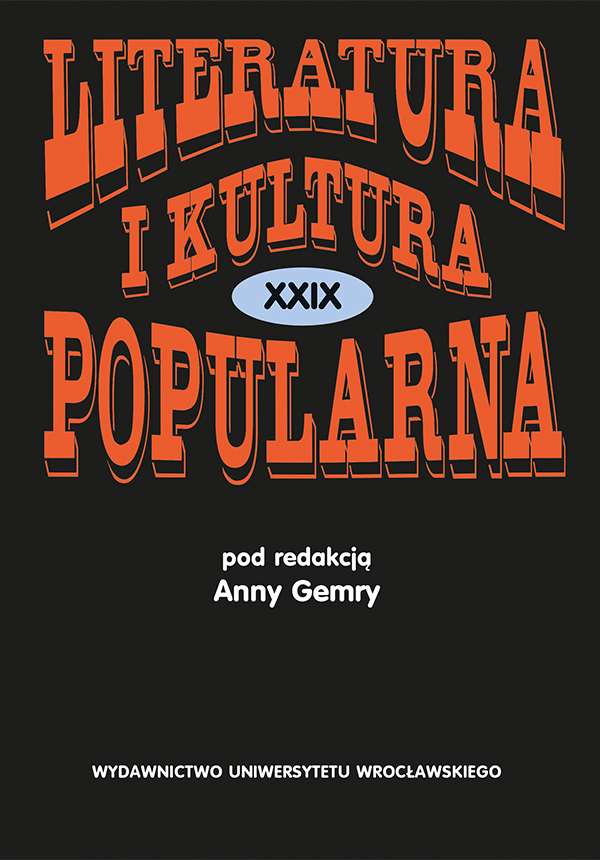

Articles

Based on the Westworld series created by the directorial duo of Lisa Joy and Jonathan Nolan, the author of the article discusses exaggeration as a diagnostic tool of contemporary culture. He analyses the image of a fantastic, post-humanist landscape in which the boundaries between reality and illusion and between humanity and its ideal imitation constructed by artificial intelligence are blurred. One of the most important points in the reflection on androids is the attitude to death and its ways of showing it. It leads not only to asking in-depth philosophical questions, but also to showing the literary and cultural series which Westworld is a part of. Finally, the series becomes a contribution to ethical considerations that are inscribed in the contexts of the most contemporary events and phenomena: the pandemic, the war in Ukraine or the development of AI. The threads of history and tradition, temporality and technological fantasies collide here, which makes the viewer and the reader reflect on the conditio humana.
Collodi C., Pinokio, przeł. B. Przybyłowska, Bellona, Warszawa 2014
Arvan M., Humans and Hosts in Westworld: What’s the Difference?, [w:] Westworld and Philosophy: If You Go Looking for the Truth, Get the Whole Thing, red. J.B. South, K.S. Engel, Wiley Blackwell, Hoboken 2018, s. 26–38.
Eco U., „Hugo, Hélas!”. Poetyka przesady, [w:] U. Eco, Wymyślanie wrogów i inne teksty okolicznościowe, przeł. A. Gołębiowska, T. Kwiecień, Dom Wydawniczy REBIS, Poznań 2012.
Gunkel D.J., The Machine Question: Critical Perspectives on AI, Robots, and Ethics, The MIT Press, Cambridge 2012.
Gunster S., Revisiting the Culture Industry Thesis: Mass Culture and the Commodity Form, „Cultural Critique” 2000, nr 45, s. 40–70.
Lee K.F., Inteligencja sztuczna, rewolucja prawdziwa. Chiny, USA i przyszłość świata, przeł. K. Hejwowski, Media Rodzina, Poznań 2019.
Mamak K., Źródła statusu moralnego robotów, [w:] „Blade Runner”. O prawach quasi-człowieka, red. K. Zeidler, Wydawnictwo Uniwersytetu Gdańskiego, Gdańsk 2021, s. 139–154.
Morrissey T.J., Wunderlich R., Death and Rebirth in “Pinocchio”, „Children’s Literature” 1983, nr 11, s. 64–75.
Olkusz K., Wszechkultura jako dziedzina badawczej stygmatyzacji, [w:] 50 twarzy popkultury, red. K. Olkusz, Ośrodek Badawczy Facta Ficta, Kraków 2017, s. 15–51, https://depot.ceon.pl/handle/123456789/15063.
Przegalińska A.K., Istoty wirtualne. Jak fenomenologia zmieniała sztuczną inteligencję, Universitas, Kraków 2016.
Rączy K., Mirek-Rogowska A., Dziki zachód ludzkich żądz. Współczesne wyzwania etyczne w relacji człowiek–maszyna ukazane w serialu „Westworld”, „Studia Socialia Cracoviensia” 2020, nr 1, s. 73–85.
Weinersmithowie K. i Z., Jakoś wkrótce. Dziesięć technologii niedalekiej przyszłości, które wszystko usprawnią i/lub zepsują, przeł. J. Radzimski, Insignis, Kraków 2020.
Collodi C., Calvino I., Pinocchio: tre motivi per considerarlo uno dei grandi libri italiani. Le Avventure Di Pinocchio, https://letteredidattica.deascuola.it/letteratura/risorse/biblioteca-03letture-critiche/biblioteca-03letture-critiche-v3-c1-pinocchio/.
Just The Best Scenes, Westworld — ‘These Violent Delights, Have Violent Ends’, YouTube, 3.04.2021, https://www.youtube.com/watch?v=9S4fnYc3Fyc.